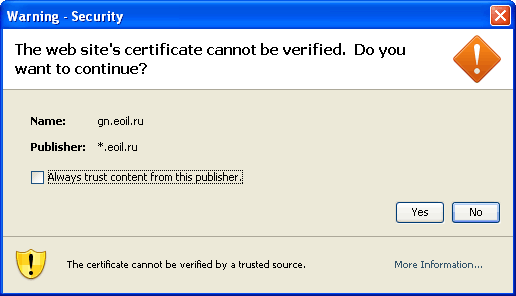Highlights
- Go has strong enterprise adoption with simplicity, ideal for backend and cloud services.
- Rust is getting all the hype for its memory safety in high-performance computing.
- Go’s community is highly engaged with active forums, blogs, and educational resources.
- Rust’s learning curve is steeper but supported by comprehensive documentation like the “Rust Book” and community-driven resources.
- Go excels in concurrency with goroutines, while Rust offers safer parallel execution through its ownership system and async programming.
While choosing a programming language community support is quite important. Developers can have access to a variety of resources, frameworks, and libraries which can help them in productivity. Moreover, troubleshooting assistance can significantly improve software reliability.
In this article, we will compare Go vs Rust in terms of various aspects. We will see how community support and learning resources will help in real-world usage.
Overview of Go and Rust
Before diving into community support, it’s essential to understand the background and goals of both languages.
Go (Golang)
Developed at Google, Go was designed for simplicity, scalability, and performance. Some of the common features that make it stand out include:
- Built-in concurrency model
- Straightforward syntax
- Efficiency in large-scale system development.
Rust
Sponsored by Mozilla, Rust focuses on memory safety and high-performance systems programming. It maintains efficiency by preventing common programming errors like buffer overflows and null pointer dereferences.
Now, let’s compare their communities.
1. Popularity and Adoption
Go Community Popularity
Go has a strong presence in enterprise settings, largely due to Google’s backing. Many cloud-native and distributed systems, such as Kubernetes and Docker, are written in Go. Moreover, it has a strong presence in DevOps and backend development.
Rust Community Popularity
Rust prioritizes safety, performance, and modern software development practices. It has consistently topped the “most loved programming language” category in Stack Overflow surveys for several years. Though Rust is not adopted as fast by enterprises as Go, it is getting popular in areas like gaming, high-performance computing, and embedded systems.
2. Documentation and Learning Resources
Learning Go
Go is often praised for its simplicity and ease of learning. The official Go documentation is well-structured, and the language provides built-in tools like Go Doc. Many tutorials, courses, and books make it accessible for beginners.
Learning Rust
Rust’s learning curve is steeper due to its complex ownership model and strict compiler rules. However, the Rust community created a detailed guide with the name “Rust Book” which made it quite easy to understand the complexities of Rust. The Rustlings exercises and interactive Rust Playground also help new developers get started.
3. Community Contributions and Open Source Support
Go’s Open Source Ecosystem
Go has a thriving ecosystem with many open-source projects and contributions. Google’s influence has helped sustain development, and Go modules simplify package management. However, some developers feel that Go’s standard library lacks modern features compared to Rust.
Rust’s Open Source Ecosystem
Rust boasts a highly active open-source community. The Rust Foundation, along with Mozilla and other sponsors, continuously improves the language. The cargo package manager and crates.io ecosystem provide a rich set of libraries, making Rust highly extensible.
4. Forum Activity and Community Engagement
Go Community Engagement
- The Go Forum and Golang Slack channels provide discussion platforms.
- The Go subreddit is the platform with more than 200k active members making it one of the largest programming communities.
- Google’s official Go blog keeps developers updated on new features and best practices.
Rust Community Engagement
- Rust has a strong presence on Discord, where active discussions and Q&A sessions occur.
- The Rust subreddit and Rust User Forum are highly engaged and helpful.
- Rust has an official community-driven newsletter that regularly updates developers on changes and improvements.
5. Web Development and Frameworks

Rust vs Go for Web Development
Both languages are used in web development, but they cater to different needs.
- Go: Popular for backend services, APIs, and microservices. Gin and Echo frameworks simplify web application development.
- Rust: Offers web frameworks like Rocket and Actix, providing powerful features and memory safety. However, Rust’s compile times and stricter ownership model may be challenging for some web developers.
6. Performance and Concurrency
Rust vs Go Performance
Rust is generally faster than Go in computational tasks due to its zero-cost abstractions and memory management efficiency. Rust memory safety ensures fewer runtime crashes and eliminates garbage collection overhead, leading to better performance.
Go Concurrency vs Rust
Go has a built-in concurrency model with goroutines and channels, making it easy to develop scalable applications. While on the other hand, Rust enforces memory safety in concurrent execution. With its ownership system and async programming model, it ensures safer parallel execution.
Conclusion
When comparing Golang vs Rust in terms of community support, both languages have their strengths:
- Go: Strong enterprise adoption, simple syntax, and an active community for cloud and backend development.
- Rust: A highly engaged community, exceptional documentation, and a rich ecosystem for performance-critical applications.
If you’re looking for a language with vast enterprise backing, an easier learning curve, and powerful concurrency, Go is an excellent choice. If safety, performance, and modern programming practices matter more, Rust offers a passionate community and a cutting-edge ecosystem.
Ultimately, the best choice depends on your project’s needs and your comfort level with each language’s paradigm. With Tambena Consulting, you can have custom web development services using the programming language your project demands. So, feel free to contact us anytime.
FAQs
Is rust taking over Go?
Rust is gaining popularity for performance-critical applications, but Go remains dominant in enterprise, cloud, and backend development.
Is Golang memory safe?
Go provides memory safety through garbage collection, but it lacks Rust’s strict memory management and ownership model.
Is Go easier to learn than Rust?
Yes, Go is easier to learn due to its simple syntax and less complex concepts compared to Rust’s ownership model.
Is Go or Rust better for concurrency?
Go is better for concurrency with its built-in goroutines, while Rust offers safe concurrency through its ownership and async model.





